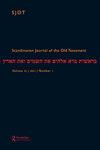Samuel-Kings as a Mirror for Princes: Parental Education and Judean Royal Families
IF 0.1
3区 哲学
0 RELIGION
引用次数: 1
Abstract
ABSTRACT King James VI recommended that his son examine “especially the bookes of the Kings and Chronicles,…there shall yee see your selfe, as in a myrrour.” While some biblical texts have been described as “mirrors for princes,” this genre label has not been applied to Samuel-Kings. This paper asks what kind of Fürstenspiegel these books would make. Two patterns stand out. First, fathers from Eli to Solomon fail to pass on their supposed arete to their sons and end up supporting a substitute son-figure. Second, in 2 Kings 16-23 rule alternates between good and evil fathers and sons. Why do the seemingly virtuous monarchs fail to educate their sons as Deuteronomy dictates? This question is addressed with special attention to Ahaz and his son Hezekiah.撒母耳王是王子的镜子:父母教育和犹太王室
摘要:国王詹姆斯六世建议他的儿子仔细阅读“尤其是《列王记》和《编年史》,……你会看到你的自拍照,就像在myrrour中一样。”虽然一些圣经文本被描述为“王子的镜子”,但这种类型的标签并没有适用于塞缪尔·金斯。本文询问这些书会成为什么样的Fürstenspiegel。有两种模式非常突出。首先,从以利到所罗门的父亲们没有把他们所谓的阿雷特传给他们的儿子,最终支持了一个替代儿子的形象。其次,在《列王记》第二卷第16-23节中,善与恶父子交替统治。为什么看似贤惠的君主们没有按照申命记的要求教育他们的儿子?这个问题是特别关注亚哈斯和他的儿子希西家。
本文章由计算机程序翻译,如有差异,请以英文原文为准。
求助全文
约1分钟内获得全文
求助全文

 求助内容:
求助内容: 应助结果提醒方式:
应助结果提醒方式:


